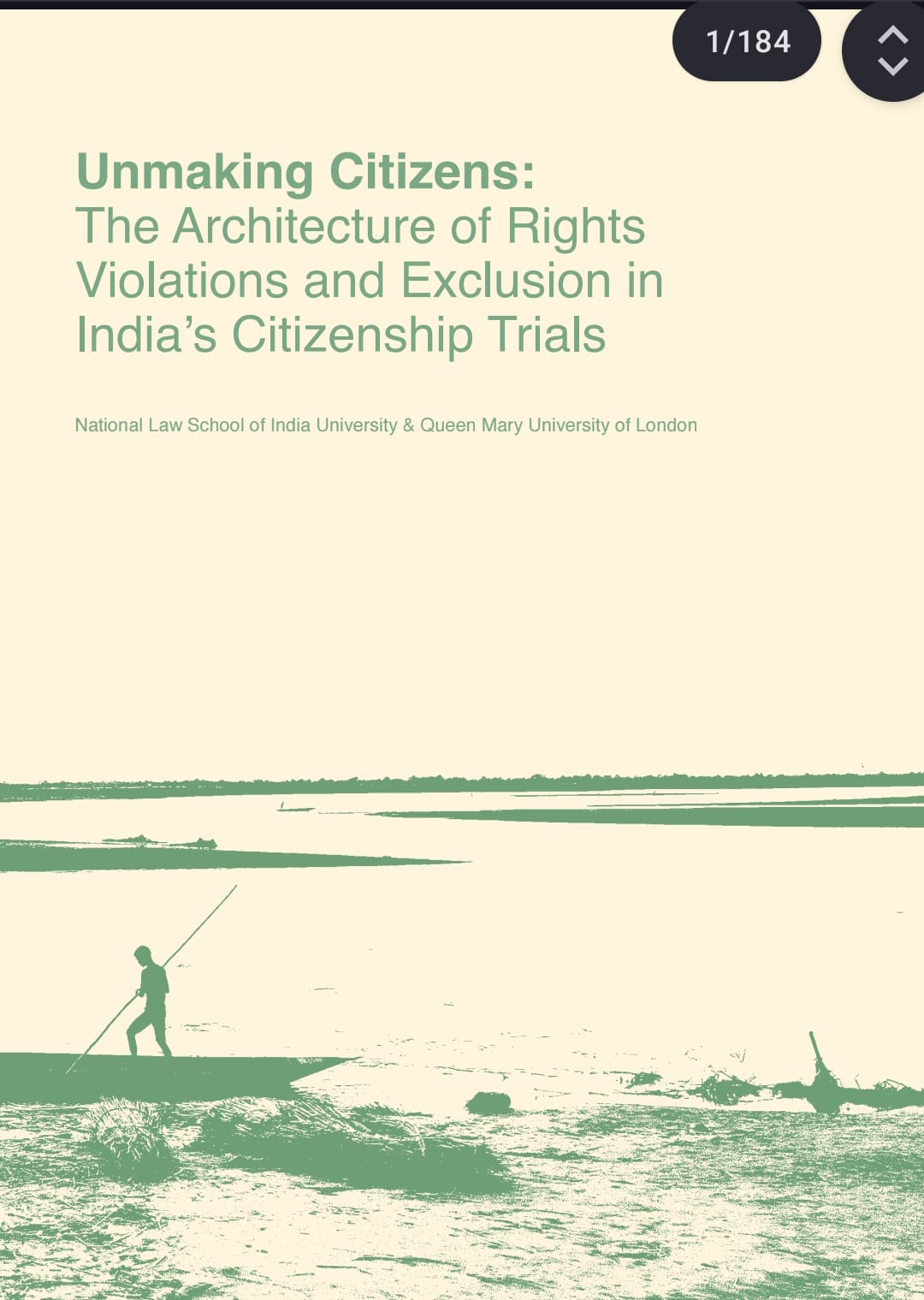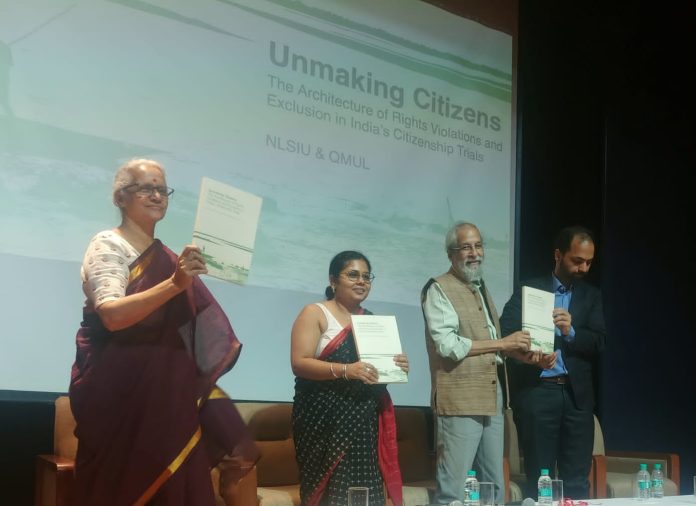– Mohd Naushad Khan
A new report, Unmaking Citizens: The Architecture of Rights Violations and Exclusion in India’s Citizenship Trials, exposes serious procedural and constitutional failures in Assam’s citizenship process. Released on July 26 at Teen Murti Bhavan, New Delhi, it is the most detailed legal and empirical study on India’s citizenship trials to date.
The report is written by Mohsin Alam Bhat, Arushi Gupta, and Shardul Gopujkar. It is based on three years of research by the Parichay Legal Aid Clinic and the National Law School of India University, Bangalore. The team examined over 1,200 Gauhati High Court judgments and interviewed lawyers and affected people.
The findings reveal a disturbing pattern. The Foreigners Tribunals (FTs) in Assam show arbitrary decisions, judicial apathy, and denial of due process. One tragic example is Rahim Ali, a 58-year-old farmer who spent almost 20 years proving his citizenship. Despite showing valid documents like school and voter IDs, an FT declared him a foreigner. The Supreme Court reversed this in 2024, but Ali died before he could see justice.
Rahim’s story is not unique. Since their creation, FTs have declared over 165,000 people as foreigners. More than 85,000 cases are still pending. Most of the accused are poor and marginalised, with little legal knowledge or help to defend themselves.

The report says FTs, meant to provide fair hearings, now work as tools of exclusion. Referrals by Assam Border Police often rely on weak or vague reports. Sometimes, inquiry officers confirm someone is Indian, yet Referral Authorities still send cases to FTs without any fresh evidence.
Even after Supreme Court rulings in Moslem Mondal (2013) and Rahim Ali (2024) requiring clear evidence before shifting the burden of proof, FTs and Referral Authorities continue to ignore these rules. The Gauhati High Court often upholds FT orders, treating major lapses as small issues.
A major issue is the denial of access to inquiry reports. These reports form the basis of cases, yet FTs regularly refuse to share them, despite laws and court orders demanding fair disclosure. Lawyers say Tribunal members reject requests, insisting the accused must prove citizenship without state evidence. FTs also refuse to allow cross-examination of inquiry officers, even when their reports contain serious errors.
In one case, a retired Army man and Kargil War veteran was called a “labourer” in an inquiry report and declared a foreigner. He presented his Army records and his work with the Assam Border Police, but both the FT and High Court ignored this proof.
The Gauhati High Court’s role is also under fire. Out of 1,194 court orders studied (from 2010 to 2019), only 20 mentioned concerns about illegal referrals or weak inquiries—despite lawyers raising these points often.
In Isha Hoque’s case, the inquiry officer said she was Indian. Still, the court made her prove the referral was improper, reversing the burden of proof. In Md. Jalaluddin’s case, Justice Ujjal Bhuyan didn’t cancel the case despite no valid reason for the referral. He only sent it back for a rehearing. In many such cases, judges ignore evidence and dismiss claims of errors.
The overall picture is grim. From false police referrals to unfair FT trials and weak High Court oversight, every step of the system fails the people. The process favours speed over justice.
The report says this is not just poor management, but a planned system of exclusion. Assam’s citizenship trials are described as “actively unjust.” The authors call for major changes in how citizenship is decided in India.
Key recommendations include fair disclosure of inquiry reports, holding judges accountable for errors, and setting up review systems for faulty referrals. The most urgent demand is to stop deciding citizenship in secretive, unconstitutional ways.
As debates over NRC and CAA continue, Unmaking Citizens reminds us of the heavy human cost of exclusion. The stories and data show this is not about rare mistakes—it’s a system designed to fail the poor and vulnerable.
Unless urgent reforms happen, the report warns, India may turn its citizenship rules into a mass tool of disenfranchisement. That would betray the very promises of equality and justice under the Constitution.




